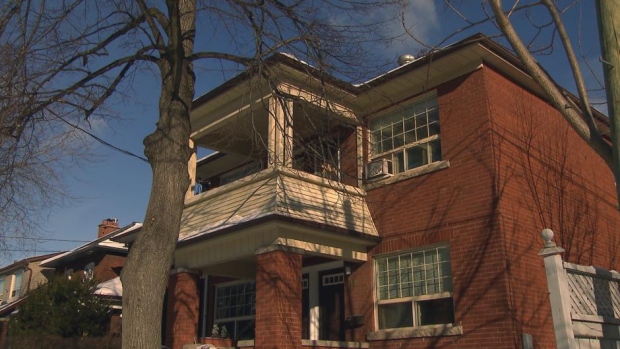Soaring home prices are pushing more Canadian households into the ranks of the highly indebted, with potentially significant consequences for the country, the Bank of Canada warned on Thursday.
Home price pressures have become so acute that almost half of Toronto homeowners who took out an insured mortgage in the third quarter were considered highly indebted.
That is to say, the loan-to-income ratio for the mortgage was over 450 per cent. Put another way, those households owe more than $4.50 of mortgage debt for every dollar of annual disposable income.
In its biannual Financial System Review, the Bank says those households could find it more difficult to adjust to a financial shock, such as losing their jobs.
"The consequences for the economy and the financial system could be significant," the bank wrote in the report.
In Vancouver, which has seen a significant slowdown but remains unaffordable by any stretch, almost four in 10 insured mortgages taken out in the third quarter had loan-to-income ratios above 450 per cent.
And it's not just the big cities. In Hamilton, an hour west of Toronto, the proportion of households in the highly indebted camp has more than doubled, the Bank said.
"Imbalances in some regional housing markets make it more likely that adverse economic shocks could cause large declines in prices."
While vulnerabilities tied to high household debt continue to rise, Bank of Canada Governor Stephen Poloz says Ottawa's latest round of mortgage tightening "will raise the underlying quality of household indebtedness over time."
"These policies will help mitigate financial stability risks over time," Poloz said in a release Thursday.
The new rules effectively make it harder for Canadians to get an insured mortgage as they are stress tested at a much higher interest rate than before.
In its report Thursday, the bank noted almost one-third of households that took out a high-ratio mortgage from September 2015 to September 2016 would have been denied mortgage insurance under the new rules.
In Vancouver, the number rises to more than four in 10. And in Toronto, almost half would have been shut out of the housing market.
As a result, the Bank of Canada is flagging the risk that some homebuyers might seek loans from lenders that don’t fall under OSFI’s purview and aren’t subject to Ottawa’s new rules.
“Borrowers affected by any of the new rules may seek out less-regulated, higher-cost lenders,” it wrote in the Financial System Review report. “Careful attention from authorities will be needed to monitor any increase in vulnerabilities resulting from greater use of alternative lending channels.”









